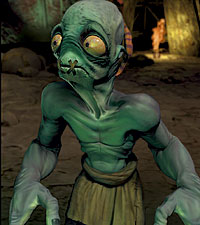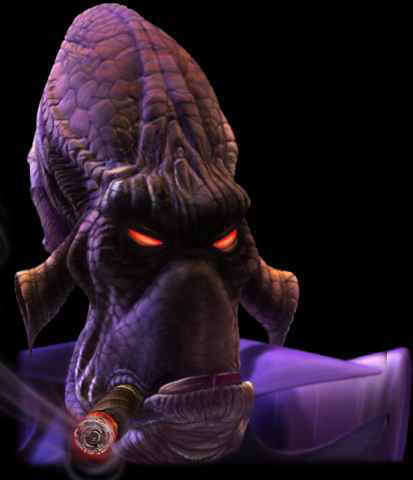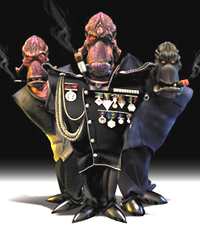Balls and Walnuts
more than you ever wanted to know
Monthly Archives: September 2006
And now, a health care advisory from Dr. Walnut
This Crystal Jelly Double Dong could be hazardous to your health.
(What? You want to know if the stuff below the cut is work safe?
Badge of honor
From Blue Gal and Cap’n Dyke,
You are a terrorist-loving, Bush-bashing, “blame America first”-crowd traitor. You are in league with evil-doers who hate our freedoms. By all counts you are a liberal, and as such cleary desire the terrorists to succeed and impose their harsh theocratic restrictions on us all. You are fit to be hung for treason! Luckily George Bush is tapping your internet connection and is now aware of your thought-crime. Have a nice day…. in Guantanamo!
For fun, try answering everything the way you would imagine George Bush would answer the questions. You’ll get the following message:
Congratulations, Patriot! Wave your flag proudly, stand tall, and bask in the glory of George Bush’s America. The terrorists will never win so long as there is a sufficient number of people like you out there. Never question, never doubt. You are on the right side. America’s side. God’s side. Rush Limbaugh has told you so. Rah rah, go Bush!!
Someone’s tongue is firmly in his cheek.
D.
Post 9/11 America: it’s an Oddworld
A lone terrorist upsets the hegemonic powers that be. Explosions, destruction of government-run factories, assassinations abound.
Who is this terrorist — Osama bin Laden? Hardly. Meet Abe, a Mudokon. One race’s terrorist is another race’s messiah.

In the second Oddworld PC game, Abe’s Exoddus, Abe led 200 fellow Mudokons to freedom, meanwhile blowing up the factories and military facilities of the evil Glukkons. Abe does this by virtue of plucky determination, cleverness (thanks to you, the gamer who controls his every move), and “scary powers” — like the ability to possess and blow up his own farts.
Meet a Glukkon.

In Abe’s Exoddus, head Glukkons Phleg, Dripik, and Aslik meet periodically to discuss their problems with the terrorist Abe. One of them, Dripik I think, says to the other two, “Where you see disaster, I see opportunity.” That’s a Glukkon for you — always looking for the profit margin.
 I often wonder if our government’s Glukkons had a similar meeting on 9/12/01. Did Dick Cheney tell George Bush, “Where you see disaster, I see opportunity”? Every one of our Glukkons seems to have seized on this moment of opportunity: Cheney to grab wealth (via Halliburton), Bush and Rove to seize power, Rumsfeld to launch his own private game of Army Men.
I often wonder if our government’s Glukkons had a similar meeting on 9/12/01. Did Dick Cheney tell George Bush, “Where you see disaster, I see opportunity”? Every one of our Glukkons seems to have seized on this moment of opportunity: Cheney to grab wealth (via Halliburton), Bush and Rove to seize power, Rumsfeld to launch his own private game of Army Men.
The analogy breaks down after that. Abe’s a hero, a messiah to his people, but the 9/11 terrorists (despite their own self-perceptions) were murderers, plain and simple. In the fictional Oddworld, good and evil are clearly defined. But in our own Oddworld, the distinctions of good and evil are blurred beyond all hope of clear perception. The Abes of our world may be murderers, but how should we view our own leaders, who through their vanity and ineptitude have caused the death or injury of thousands of individuals, American and otherwise?
I’m afraid we live in a world full of Glukkons. The rest of us are Mudokons, but, unlike Abe, our powers are limited.
D.
9/11/01: It didn’t have to change anything
 On the morning of 9/11/01, a patient told me what had happened in New York City. I didn’t immediately believe him. Patients, especially the older ones, tell me lots of strange things. Not all of them are true, and this one in particular sounded unbelievable.
On the morning of 9/11/01, a patient told me what had happened in New York City. I didn’t immediately believe him. Patients, especially the older ones, tell me lots of strange things. Not all of them are true, and this one in particular sounded unbelievable.
Between patients, I called Karen, and she confirmed the story. I didn’t see the footage until that evening. It still seemed unbelievable even after I watched the news. I felt like one of those cranks who refuses to believe in the Apollo moon landings. Surely this hadn’t happened.
At some level I began accepting the idea but I still kept it at a distance. I thought of it as I would a speculative fiction plot bunny. “Suppose it’s real. Suppose terrorists really did crash those planes,” and so forth. And I swear to you this is true: I wasn’t worried about what the terrorists would do next — I worried what George Bush would do next.
When it comes to politics, I’m not always right, but this time I was dead-on accurate.
The following thought is neither original nor particularly well-stated: the greatest damage to our country on 9/11/01 was that which was perpetrated upon us by our leaders. I saw it coming. I dreaded it. I knew the world had changed, knew it would take a strong and wise leader to weather the change, rise above it, and prevail; knew George Bush wasn’t that man.
I was wrong about some things. Frankly, I thought we would lose our civil liberties in a matter of weeks rather than months, and I didn’t expect the tide of public opinion to turn within the decade. Call me a pessimist.
9/11 didn’t have to change anything — not like this, at any rate. We could have learned from it. We could have led the world. We didn’t have to fuck everything up.
D.
Mad Libs LIVE
Michelle gave me a great suggestion. For the next live blog session, willing participants should email me a snip from their works-in-progress. Nothing too big, perhaps 100 to 200 words. I will Mad Lib-ify them and email them out to other would-be participants. Email me back your responses. When we get together for live blogging, I’ll read the results.
Let me know if I need to explain Mad Libs. Wait, here’s a link.
Back to editing. Sorry this place ain’t more lively.
Oh, you may need my email addy:
azureus
at harborside
dot
com
We’ll shoot for next Saturday night at 7 PST. And no, you don’t have to play to show up at the live blog session.
D.
Lobsterissimus bumbakissimus
Jim Donahue’s link to an Ernie Kovacs clip got me thinking about other comedians whom I know by reputation but not by direct experience. Kovacs was before my time, but what about Peter Cook and Dudley Moore?
We didn’t get much British TV when I was a kid. The Prisoner made it across the pond, as did Masterpiece Theater, and not much else. My first exposure to Cook and Moore came in my 20s, when I saw Bedazzled. Over the years, I’ve gotten bits and pieces of this duo, but never enough. I own Tragically, I was an Only Twin, but it’s not the same as seeing a live performance.
YouTube has a few clips. This one really grabbed me: Cook’s and Moore’s voices with chimp performers.
Jane Mansfield . . . who knew?
D.
Editing . . .
I’m more than halfway through my first read-through and really enjoying the story. Some time ago, I must have mentioned the fact that I write primarily to please myself. Consequently, I tend to love my own writing with a most unhealthy lack of objectivity.
So, so unprofessional. But here I am, giggling away at my own jokes.
Tammy, by the way, truly is a wicked wench. My wife was doing just fine reading my manuscript until we received the ARC for Tammy’s Valley of the Soul. Then Karen “got distracted.” Thanks, Tam.
Karen is easily distracted from my manuscript, particularly since she reads it not as romance but as autobiography. I can’t imagine what she means by that. I’m not tall, I don’t look a thing like Adam Sandler, and I’m an even better cook than Brad. But if she wants to act out scenes from the book with me, I’m game.
The question I’m mulling is how much to add to the manuscript. Karen thinks the relationship needs to play out over more time. As it presently reads, the whole thing is very much a whirlwind. Is this necessarily a bad thing? But the more I futz with the timeline, the more difficult my editing job will be.
Gotta think about it.
Time to go shopping.
***
Live blogging tonight, folks. Let’s shoot for 7 PM Pacific time. The weather cooled off some, so I doubt I’ll be topless this time. Sorry.
D.
Honesty, humor, and SERIOUS fiction
Only one point to make here, people: SERIOUS fiction (all caps because, you know, these literary fiction writers are SERIOUS, unlike us genre writers) does not have a monopoly on honesty.
I thought about this while listening to my new Gogol Bordello CD, Voi-La Intruder. The song is called “God-Like” and here are the first few stanzas:
You and I resemble god
made by him to come after him
everything in us resembles god
except for one thingEverything in us resembles god
except for one thing.
Everything in us resembles god
except for one thing.I am a liar you are a cheater
I am a thief and you are a traitor
I’m downright stupid
and you are paranoid
haha, there’s more than oneWell let’s just keep going, then;
When I screw
I don’t care for the beauty.
I drape myself over hands that are crookedWhen I’m hurting myself
I just try to hurt you
you respond with tears
but they are never true
Read the rest of the lyrics here.
When I first listened to this song, I felt a strange pleasure rushing through me as I recognized that unique mixture of honesty and humor, something buoyed up from the well of emotion found in a real, loving-and-hating relationship. I realized that it doesn’t matter whether you’re writing lyrics, genre lit, or literary lit. If the honesty isn’t there, the writing is crap.
Remember these lyrics?
I need you, babe
To put through the shredder
In front of my friends
Ooooh Babe.
Dont leave me now.
How could you go?
When you know how I need you
To beat to a pulp on a Saturday night
Ooooh Babe.
How could you treat me this way?
Karen and I have always loved that song for its honesty. The protagonist is a creep, an abuser, but he’s honest enough to bare it all and expose himself to universal contempt. Also, as painful as this song is, black humor abounds.
I’m going to go out on a limb and suggest that humor can be taken as an index of honesty in writing. I’m not saying humorless writing is dishonest — but if the author hasn’t mined the humor from a situation, he hasn’t done the full job.
What do you think?
D.